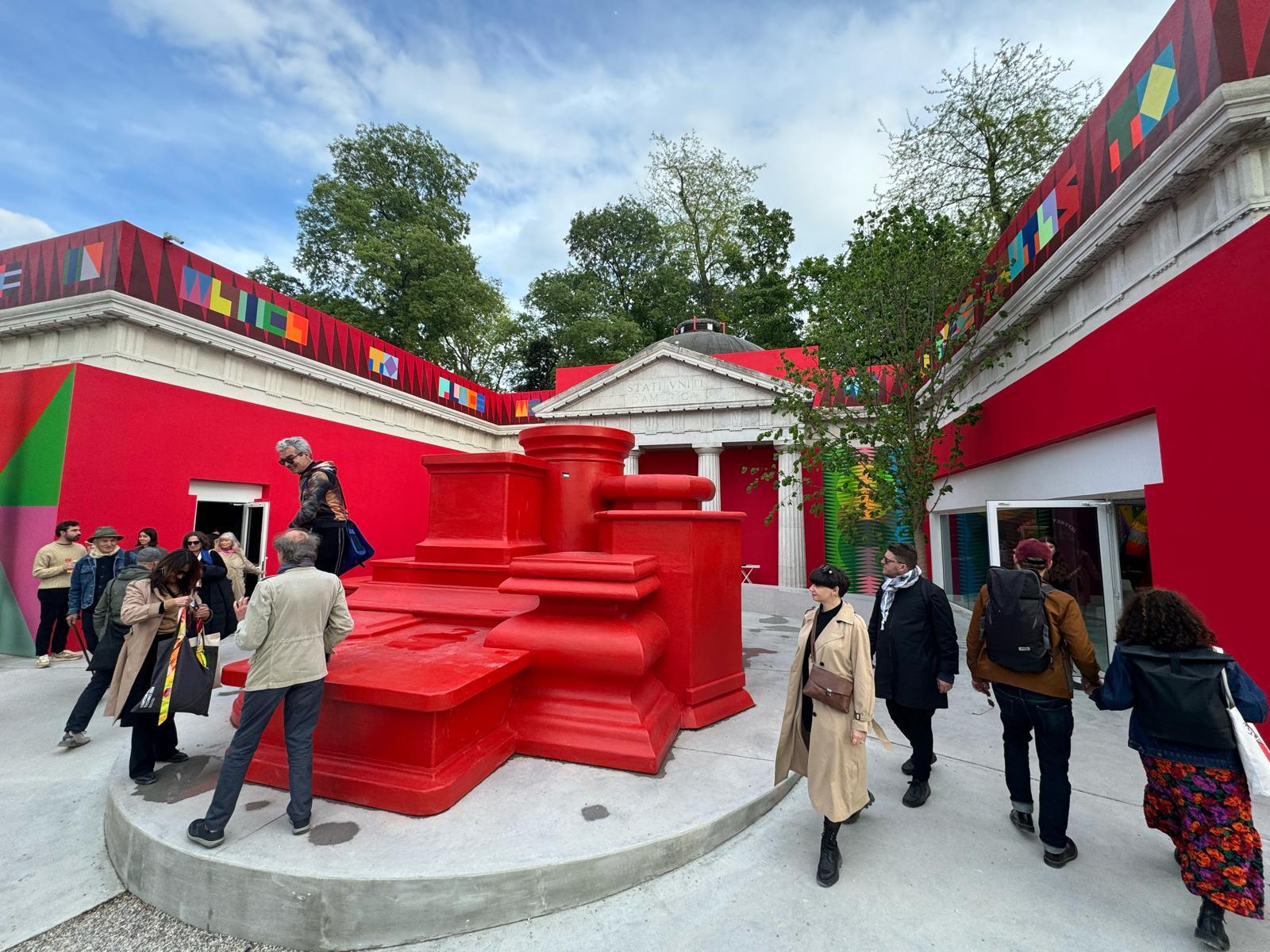The United States government opened the portal for Venice Biennale pavilion proposal applications last week, featuring Trumpian new guidelines emphasizing “American values” and “American exceptionalism” as well as restrictions on “promoting Diversity, Equity, and Inclusion.”
With just over a year until the 2026 Biennale and selections expected to be announced on September 1, the process leaves applicants an astonishingly tight turnaround time to submit to the international exhibition. The US State Department Bureau of Educational and Cultural Affairs’s (ECA) new guidelines and timeframe for the $375,000 funding opportunity, initially reported by Vanity Fair, are a far cry from those of the previous grant cycle. The artist proposal for the 2024 Biennale, which featured the works of Cherokee-Choctaw artist Jeffrey Gibson, had been selected by July of 2023 — leaving approximately 11 months for preparation and facilitation, rather than the eight months allotted for this cycle.
In addition to the shortened timeline, collaborating artists and curators are now expected to outline how their program ideas “will work to advance the interests of the United States in program administration, design, and implementation.” The proposal review criteria will evaluate an artist’s “ability to showcase American exceptionalism and innovation.”
A funding limitations and restrictions section forbids any funds to be used for programming related to Diversity, Equity, and Inclusion (DEI) in accordance with President Trump’s executive order mandating the end of DEI initiatives at the federal level.

For context, ECA’s 2023 pavilion grant opportunity heavily emphasized diversity and inclusion in its guidelines for proposal submissions, underscoring the two as major points of US foreign policy — along with “democracy, human rights, the environment, health and food security, self-determination, resiliency, and tackling shared global challenges.”
Strangely, an additional point to the limitations and restrictions section specifically outlines that “none of the funds awarded resulting from this … opportunity may be made available for subawards, direct financial support, or otherwise used to provide any payment or transfer to United Nations Relief and Works Agency (UNRWA).”
UNRWA, which has brought aid and development to Palestinian refugees since 1949, has been at the center of controversy amid allegations of concealing and harboring members of Hamas and other designated terrorist organizations in its ranks, with some staff members having been accused of participating in the October 7 attacks.
Israel banned the agency as of January 30, and two US bills have been introduced in an attempt to designate UNRWA as a foreign terrorist organization, though there have been no further motions.
Hyperallergic has contacted the ECA for additional information regarding the shortened timeline, what constitutes American values, and clarity regarding the inclusion of UNRWA in the funding limitations and restrictions section.
The National Endowment for the Arts (NEA), responsible for convening the panel of proposal reviewers, has been contacted for comment as well. Along with the National Endowment for the Humanities and the Institute of Museum and Library Services, the NEA is one of multiple government agencies President Trump has threatened to eliminate in his federal budget.

